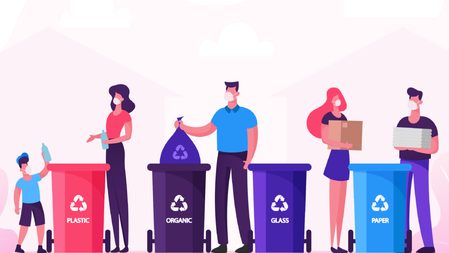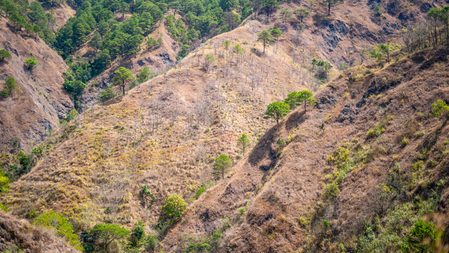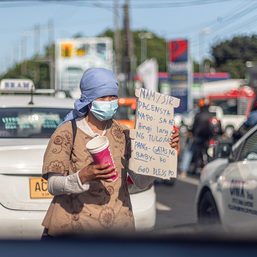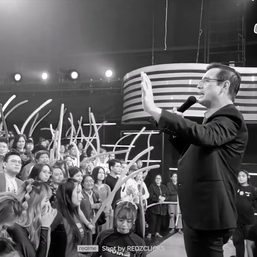SUMMARY
This is AI generated summarization, which may have errors. For context, always refer to the full article.
![[OPINION] A case for holistic minimalism in the Philippines](https://www.rappler.com/tachyon/2021/07/imho-holistic-minimalism-sq.jpg)
My heart clenches every time I have to claim another delivery. What is it this time? A new blouse for my sister? More curtains for my mom? Or is it yet another pair of sneakers for my dad? But these don’t even compare to when I was receiving almost five packages a week for our helper.
It’s not like I haven’t been here before. Until about a year ago, I too have been using any excuse to use a free shipping voucher. Every time I wanted something, I kept thinking, “If I could only have this, my wardrobe, my skincare routine — my life — would be complete.” But it went on and on.
Deep-diving into the true concept of minimalism is what snapped me out of this discontent. The chronic insecurity from our evidently “payaman” culture. A discontent fueled by ads and personalities constantly convincing us we’re lacking something. Discontent I now realize to be at great cost, not only to my wallet and well-being but ultimately, the world around me.
What it means to be a minimalist
Minimalism is so much more than a trend in art, fashion, or interior design. Contrary to popular belief, it neither suggests we strip ourselves bare of belongings nor turn our houses into pristine all-white studios – rather, that we only fill our lives with things that serve a meaningful purpose.
That said, Joshua Millsburn of The Minimalists defines it as a “lifestyle that helps people question what things add value to their lives.” And just like Jenny Burger of Simply + Fiercely, it could just start with the question: “What would help me create the life I truly wanted? And what was simply weighing me down?”
Essentially, a minimalist is not someone who owns little to no possessions; but a person who has specified what she values most in life, thereafter removing everything else that distracts from it. And this is where the widely known process of decluttering comes in.
How clutter sabotages us
A clean and organized workspace is the top suggestion for boosting productivity. It’s no surprise that not having so many things going on allows us to concentrate and work better. Why can’t we apply the same concept to being a functional person, well able to focus on the more important things in life?
As Joshua Becker of Becoming Minimalist puts forward, the fact is: “Everything we own requires a bit of ourselves. Possessions cost us money, time, energy, and focus. They become a physical and mental distraction. Every increased item we own adds stress and anxiety onto our lives.”
This explains why in Minimalism: A Documentary About the Important Things, a woman diagnosed with cancer says becoming a minimalist helped her cope with such a devastating illness. She declares feeling more balanced and at ease, knowing she didn’t have to maintain and hold on to so many unnecessary things.
I felt the same way giving away almost half of my closet last year, and even more so after I cut off the problematic persons in my life (yes, relationships can become clutter!). I imagine this is also what Burger experienced when she said, “For every old handbag or never worn sweater that goes out the door, there are thoughts and beliefs that need to be released as well.”
All of this said, it’s a shame we rarely contemplate if the things we concern ourselves with are even worth it. Are two cars worth keeping if it cramps your garage and you really only use one on the daily? Do you absolutely need to buy another shade of nude lipstick or get your hands on that latest iPhone model? I think if we could be utterly honest in answering these, we would not be wasting so much of our hard-earned and valuable resources.
We can’t keep living this way
Our current culture of overconsumption is driving the climate crisis. Yes, the crisis to blame for terrifying super typhoons, species extinction, and even the unbearable heat we’ve been experiencing. Today, resource extraction and processing are responsible for more than 90% of land-and-water-related environmental impacts; while almost half of the world’s greenhouse emissions (or gases that cause global warming) come from manufacturing consumer products.
At the rate at which we’re giving into these 7.7 sales and influencer products, we can expect more factories to be built and natural resources to be wasted harvested. And while our current carbon emissions remain on the rise, a recent study predicts that one-third of the world’s population will experience near-unlivable heat by 2070. You can bet that a third-world tropical country like the Philippines will have a fair share of that.
Truly, and as David Wallace-Wells opens in his book The Uninhabitable Earth, “It is worse, much worse, than you think.” Sooner than we expect, we will be exhausting our planet’s life support systems. It is then not enough to focus on “sustainable products;” we need a radical decrease in the number of things bought and produced. There are only so many luxury cars, sneakers, and makeup palettes — only so much of our luho — that the planet can take.
The more we accumulate things, the more we are taking from the world we live in. We take up space in our homes with so much unnecessary stuff. We fuel the companies that keep abusing our mother earth. All the time we spend acquiring so many things is also attention diverted from the people we love.
On top of it all, we fall short in helping those who most need the resources we are throwing away. As we keep indulging ourselves and adding to cart, we hinder our ability to make way for other people’s needs. How is it that most of us can constantly splurge on a designer bag but resort to giving spare change when confronted by the poor?
People always tell us to finish all the food on our plates because the masses are starving. Fair enough. But I think a better way to avoid wastage is to stop being “takaw tingin” in every aspect of our life. When we resist the urge to keep taking beyond our capacities, we help ensure no one has to settle for our leftovers — because there will be plenty to go around for everyone.
Ultimately, by applying the true concept of minimalism to our lives, we could very well dedicate more of what we have to those who have less. Think about it: if more people developed the habit of only taking what they need and giving everything else they can, maybe we wouldn’t be living in a rapidly depleting planet, dominated by billionaires while a ton of people live off breadcrumbs.
As Luke 12:15 states, “Watch out! Be on your guard against all kinds of greed; a man’s life does not consist in the abundance of his possessions.” Apart from helping us free up space, the most profound reason for letting go of things is that “by clearing the clutter from life’s path, we can all make room for the most important aspects of life: health, relationships, passion, growth, and contribution,” as stated by The Minimalists. – Rappler.com
Joy Therese Gomez is a freelance writer and philosophy graduate. She values generosity in a world swelling with needs.
Add a comment
How does this make you feel?



![[Rappler’s Best] US does propaganda? Of course.](https://www.rappler.com/tachyon/2024/06/US-does-propaganda-Of-course-june-17-2024.jpg?resize=257%2C257&crop=236px%2C0px%2C720px%2C720px)








![[OPINION] Ignorance and prejudice](https://www.rappler.com/tachyon/2024/07/tl-ignorance-and-prejujdice.jpg?resize=257%2C257&crop_strategy=attention)
![[OPINION] Is the Philippines ‘semi-feudal,’ ‘backward capitalist,’ or neither?](https://www.rappler.com/tachyon/2023/12/TL-PH-semi-feudal-backward-capitalist-December-26-2023.jpg?resize=257%2C257&crop_strategy=attention)
![[OPINION] Are Filipinos really a happy people?](https://www.rappler.com/tachyon/2023/12/are-we-truly-happy-people-december-22-2023.jpg?resize=257%2C257&crop=438px%2C0px%2C1080px%2C1080px)
![[OPINION] Road rage and mimetic violence](https://www.rappler.com/tachyon/2023/09/tl-mimicry.jpg?resize=257%2C257&crop=255px%2C0px%2C720px%2C720px)
![[OPINION] Christ could be queer? On blasphemy](https://www.rappler.com/tachyon/2023/07/tl-blasphemy.jpg?resize=257%2C257&crop_strategy=attention)
There are no comments yet. Add your comment to start the conversation.